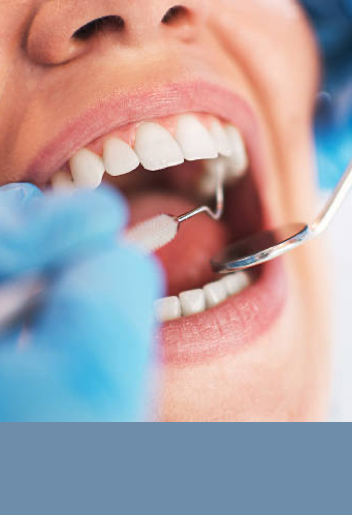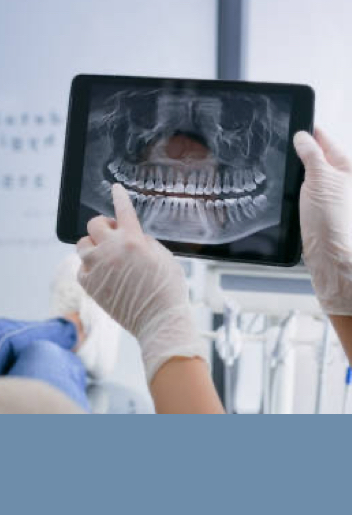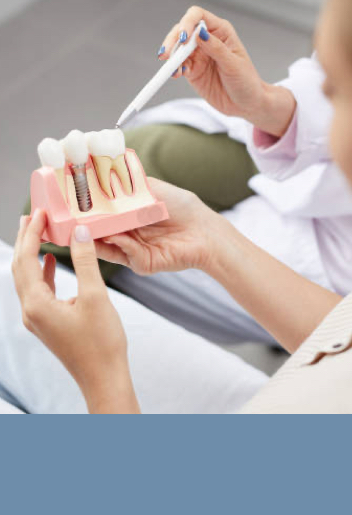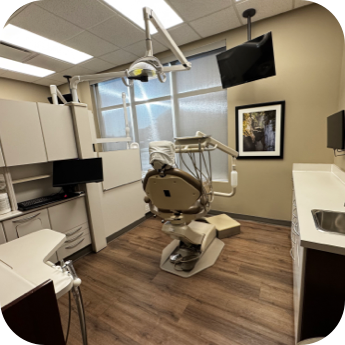When you have a painful tooth, it’s normal to look for quick relief. You might search online for home remedies that can ease the ache. While some natural options can help with discomfort, a tooth infection is a serious issue that qualifies as a dental emergency, requiring professional attention to prevent further problems.
Some remedies like salt water rinses or over the counter pain relievers can provide temporary relief while you wait to see a dentist. It’s important to understand that these are not a substitute for professional treatment. The only way to truly resolve the infection is with proper dental care from a welcoming and experienced team.
First, a Word on Professional Dental Care
When you have a painful tooth, it’s normal to look for quick relief. While some home remedies can help with discomfort, a tooth infection is a serious issue that needs professional care to prevent further problems.
Why a Dental Visit Is So Important
A tooth infection, also known as an abscess, won’t go away on its own. The source of the infection is deep within the tooth or gums, where home remedies can’t reach. A dentist can find the cause and treat it correctly.
What Happens if a Tooth Infection Is Left Untreated?
An untreated infection can spread to your jaw, neck, and other parts of your body. This can lead to significant health complications. It’s always best to have it looked at right away.
How to Spot a Tooth Infection
Pain is the most obvious sign, but there are other symptoms to watch for. If you notice any of these, it’s time to call a professional.
Common Signs Of A Dental Abscess
- A persistent, throbbing toothache, which is often a sign of sudden tooth pain that shouldn’t be ignored
- Pain when you chew or bite down
- Swelling in your face, cheek, or neck
- Sensitivity to hot or cold temperatures
- A small, pimple-like bump on your gums
- Bad breath or a foul taste in your mouth
Can a Tooth Infection Cause Ear Pain?
Yes, it can. The nerves in your face are closely connected, so the pain from an infected tooth can feel like it’s coming from your ear. This is known as referred pain.
What Are the Symptoms of an Infection That Spreads?
If the infection spreads to other areas, you may develop more severe symptoms. Seek immediate attention if you experience:
- Fever and chills
- Swelling that makes it hard to open your mouth, swallow, or breathe
- A sudden rash
- Feeling generally unwell
Saltwater rinse
Other Home Care Options to Manage Discomfort
- Cold compress: Apply a cold pack to the outside of your cheek for 15–20 minutes to help with swelling and pain.
- Saltwater rinse: A warm saltwater rinse is a popular choice for temporary relief. It can help clean the area and may soothe sore gums. To make one, simply mix half a teaspoon of salt into a glass of warm water and swish it around your mouth.
Can You Get Rid of a Tooth Infection Without a Dentist?

No, you cannot permanently get rid of a tooth infection without professional treatment. Home remedies only address the surface symptoms, not the underlying cause of the infection.
Why Home Remedies Are Not a Cure
An abscess is a pocket of pus trapped inside your tooth or gums. To heal, the source of the infection must be removed, and the area must be professionally cleaned, something that can’t be done at home.
The Role of Your Dentist
When you visit a dentist, they have the tools and knowledge to properly diagnose the problem. They can determine how far the infection has spread and recommend the right treatment, which may involve restorative dental services, to fix it for good.
What to Expect at Your Dental Appointment
Your visit will focus on alleviating your pain and developing a plan to restore your oral health. Your dental team will help you feel as comfortable as possible.
The First Step: An Examination
Your dentist will examine your tooth and the surrounding gums. They will likely take an X-ray to visualize the tooth’s roots and assess whether the infection has spread to the surrounding bone.
Common Treatments for Tooth Infections
Depending on your specific situation, treatment may involve one of the following:
- Draining the abscess: The dentist makes a small cut to allow the pus to drain.
- Root canal therapy: This procedure removes the infection from inside the tooth to save it.
- Tooth extraction: If the tooth cannot be saved, it may need to be removed.
- Prescription medication: Your dentist may prescribe medicine to help clear up the infection.
Act Now for Fast, Reliable Relief
At Country Hills Dental, we understand that a toothache can be a stressful experience. Our team is here to provide warm, personalized care to get you back to feeling your best. If you experience symptoms of a tooth infection, don’t wait for it to worsen.
Scheduling an appointment with a dentist is the most reliable step toward relief & recovery. Contact our team today to get the care you need for a healthy, pain-free smile.












